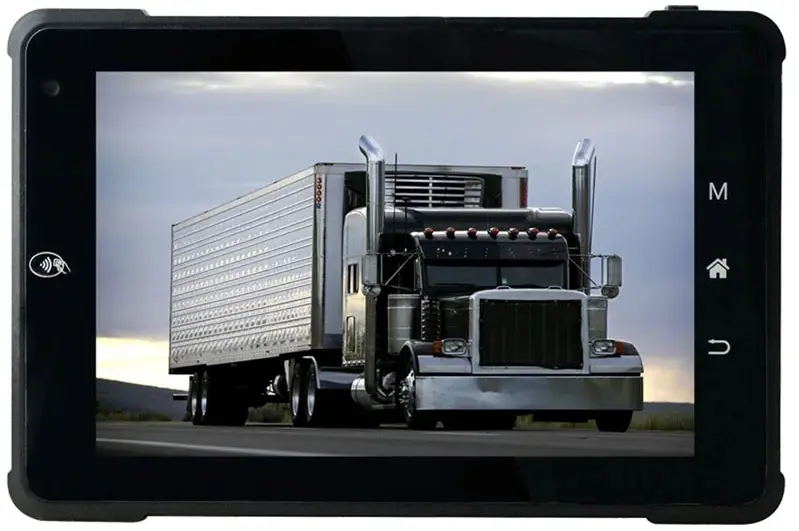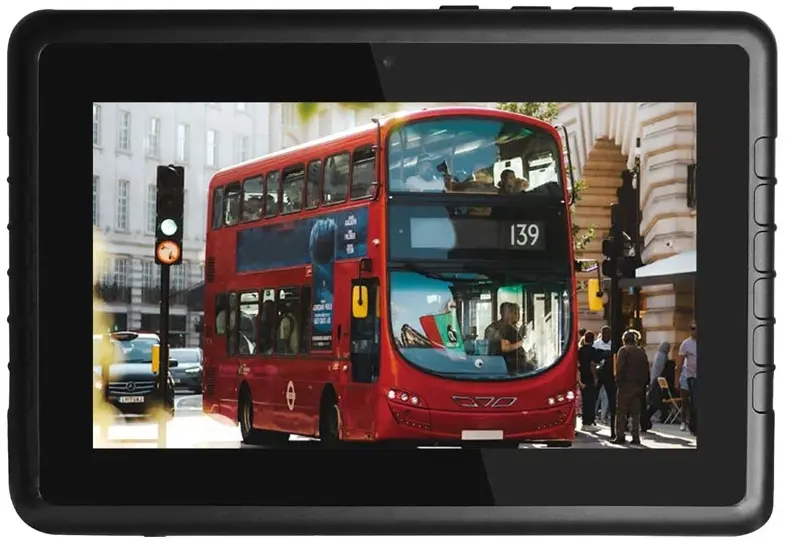In the realm of bus management, effective tools are crucial for ensuring safety, efficiency, and smooth operations. Traditional tools have served the industry for years, but advancements in technology, particularly rugged tablets, are reshaping how bus companies manage their fleets. This article delves into the benefits and challenges of each, helping you make an informed decision.
Understanding Bus Management
Bus management encompasses the planning, coordination, and monitoring of bus services to ensure timely operations. Efficiency in this sector not only enhances customer satisfaction but also optimizes operational costs. With the rise of digital solutions, managers are now equipped with tools that provide real-time data, improving overall management effectiveness.
Role of Technology in Bus Management
The integration of technology in bus management has transformed the landscape. From GPS tracking to digital communication tools, technology helps streamline operations, minimize delays, and improve safety measures. As the industry continues to evolve, the need for robust, reliable tools becomes more apparent.
Traditional Tools for Bus Management
Traditional tools in bus management typically include paper-based systems, radios, and basic digital software. While these methods have been effective in the past, they come with limitations that can hinder operational efficiency.

Q777: 7” Rugged Driver Data Terminal Powered by Android 11
Advantages of Traditional Tools
One of the main advantages of traditional tools is familiarity. Many operators are accustomed to these methods, making them easy to use without extensive training. Additionally, traditional tools often have lower initial costs, making them accessible for smaller companies.
Limitations of Traditional Tools
Despite their advantages, traditional tools are increasingly seen as outdated. Paper records can lead to errors and miscommunications, while basic software often lacks real-time data capabilities. As demands for efficiency grow, relying solely on traditional methods can impede progress.
Overview of Rugged Tablets
Rugged tablets are specialized devices designed to withstand harsh conditions. With features like enhanced durability, long battery life, and advanced processing capabilities, they are tailor-made for challenging environments like those faced in bus management.
Key Features of Rugged Tablets
Rugged tablets boast several essential features:
- Durability: Built to resist drops, water, and dust.
- Battery Life: Long-lasting batteries support extended use without frequent recharging.
- Performance: Powerful processors allow for smooth operation of multiple applications simultaneously.
Benefits of Using Rugged Tablets
Adopting rugged tablets in bus management offers numerous advantages:
- Improved Efficiency: Instant access to data streamlines decision-making processes.
- Real-Time Communication: Enhances coordination between drivers and dispatchers.
- Enhanced Data Collection: Easy to gather and analyze operational data.
Comparing Performance
When comparing rugged tablets to traditional tools, the performance gap is notable. Rugged tablets provide superior usability in harsh environments, allowing operators to collect and share information without interruption.
Usability in Harsh Environments
Rugged tablets are specifically designed for challenging conditions, such as extreme temperatures and vibrations experienced on buses. This resilience ensures they function effectively, regardless of the environment.
Cost Analysis
Cost is a significant factor when choosing between rugged tablets and traditional tools. While rugged tablets may require a higher initial investment, their longevity and efficiency can lead to savings over time.
Total Cost of Ownership
Understanding the total cost of ownership (TCO) is crucial. Rugged tablets often come with lower maintenance costs due to their durability, while traditional tools may require frequent replacements and updates.
Case Studies and Real-World Applications
Numerous organizations have successfully integrated rugged tablets into their operations. For example, a major bus company reported a 20% increase in on-time performance after switching from traditional tools to rugged tablets, highlighting their effectiveness in improving operational efficiency.
User Experiences and Feedback
Feedback from operators using rugged tablets indicates a significant improvement in workflow. Many users appreciate the ability to access real-time information, which enhances decision-making and safety on the road.
Future Trends in Bus Management Tools
As technology continues to evolve, so too will bus management tools. Emerging trends include the integration of artificial intelligence (AI) and the Internet of Things (IoT), which promise to further streamline operations and enhance data analysis.
The Role of AI and IoT
AI and IoT technologies will play pivotal roles in the future of bus management. From predictive maintenance to advanced route optimization, these technologies can provide insights that enhance operational efficiency and safety.
FAQs
Are rugged tablets worth the investment?
Yes, the initial cost is often outweighed by long-term savings and increased efficiency.
How do rugged tablets enhance safety?
They provide real-time data and communication, allowing for quicker responses to incidents.

V7S: Android 11 Rugged Driver Tablet,IP65,Sunlight Readable
What is the lifespan of a rugged tablet?
With proper care, rugged tablets can last several years, often outliving traditional tools.
Can rugged tablets operate in extreme conditions?
Absolutely. They are designed to function in harsh environments, making them ideal for bus management.
How easy is it to train staff on rugged tablets?
Training is generally straightforward, as their user-friendly interfaces resemble popular consumer devices.
What support is available for rugged tablets?
Many manufacturers offer extensive support and warranty options, ensuring ongoing assistance.
Conclusion
In the debate of rugged tablets vs. traditional tools for bus management, the advantages of rugged tablets become clear. Their durability, efficiency, and advanced capabilities make them an invaluable asset for modern bus operations. As technology continues to advance, embracing these tools will ensure that bus companies remain competitive and effective in their management strategies.
link:https://www.waysion.com/blog/rugged-tablets-vs-traditional-tools-bus-management/
评论
发表评论